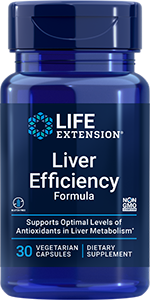- Science & Research
- Science News
- Newsletter
- 2012
- July 27

Newsletter
Newsletter
High Antioxidant Diet Could Lower Pancreatic Cancer Risk
High antioxidant diet could lower pancreatic cancer risk
Friday, July 27, 2012. Research described in an article published online on July 24, 2012 in the journal Gut reveals an association between higher levels of dietary antioxidants and a lower risk of cancer of the pancreas, one of the most deadly forms of cancer. A team from the University of East Anglia and the University of Cambridge in England evaluated data from 23,658 participants in the European Prospective Investigation of Cancer (EPIC)-Norfolk study of men and women residing in Norfolk, England. Seven-day food diaries completed after enrollment provided data concerning the participants' intake of vitamins C and E, selenium and zinc. Blood samples provided by 95 percent of the subjects were analyzed for serum vitamin C levels. Over the first decade of follow up, 49 men and women developed cancer of the pancreas. Among participants whose combined intake of vitamins C and E, and selenium were among the top 75 percent of participants, there was a 67 percent lower risk of developing pancreatic cancer compared to subjects whose intake was among the lowest 25 percent. When the nutrients were analyzed separately, the strongest protective effect was observed for selenium. Increasing serum levels of vitamin C were also associated with a reduction in pancreatic cancer risk. Those whose vitamin C levels were among the top one-fourth of participants experienced an 81 percent lower risk of cancer of the pancreas compared with those whose levels were among the lowest fourth. Andrew R. Hart and colleagues remark that if the association is causal, 8.2 percent of all pancreatic cancers could be prevented by improved intake of selenium and vitamins C and E. They note that antioxidants scavenge free radicals that are increased by smoking and diabetes, which are risk factors for pancreatic cancer. These nutrients may also help reduce chronic inflammation that plays a role in the development of the disease. "If a causal association is confirmed by reporting consistent findings from other epidemiological studies, then population based dietary recommendations may help to prevent pancreatic cancer," they conclude. | ||||||||||||||||||||||||||||||||||||||||
 | ||||||||||||||||||||||||||||||||||||||||
| ||||||||||||||||||||||||||||||||||||||||
 | ||||||||||||||||||||||||||||||||||||||||
| ||||||||||||||||||||||||||||||||||||||||
FernBlock® is a registered trademark of Industrial Farmaceutica Cantabria, S.A. Patent pending SendaraTM is a trademark of Nutragenesis, LLC. LuraLean® is a registered trademark of AHD International LLC. | ||||||||||||||||||||||||||||||||||||||||
The latest news on aging, nutrition, and vitamins
Lab
Testing
How Life Extension lab testing works









